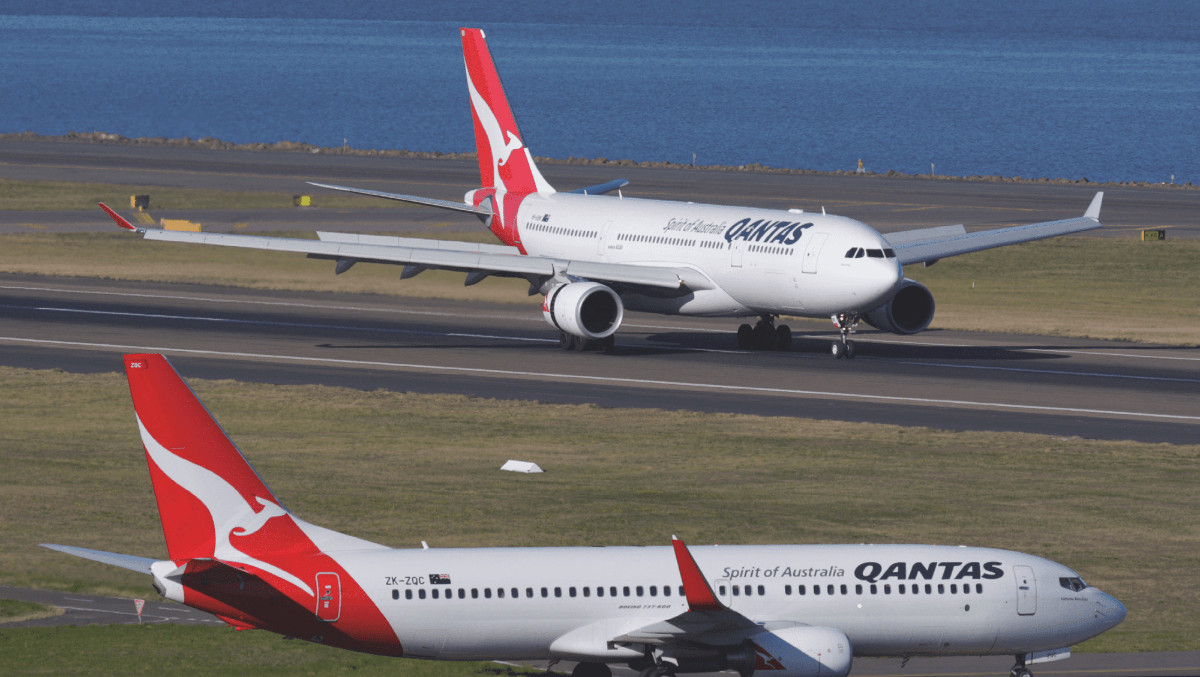
Nearly 2,300 flights between Sydney and Melbourne were cancelled in the first six months of 2023, presenting fresh evidence that major airlines are taking advantage of the rules around take-off slots to punish smaller rivals.
The figure is higher than the 1,700 recorded in pre-pandemic 2019 and 23 per cent less than last year – when numbers blew out due to Omicron and staff shortages.
It follows the ACCC in June arguing that larger airlines “can exploit” slot rules to stifle competition, with both Bonza and Rex arguing the system is putting them at a severe disadvantage.
The accusations have been strongly denied by both Qantas and Virgin, with the latter recently arguing the high cancellation rate was, in fact, due to the “complexity” of operating in the NSW capital.
A slot is a literal time slot that allows an airline to take off at a specific airport at a particular time.
Currently, an airline can hold a timeslot at an airport indefinitely as long as it flies it 80 per cent of the time, allowing carriers to cancel up to a fifth of flights and maintain a monopoly.
It has led to accusations from critics that airlines take slots they do not actually need as there is a huge buffer to cancel so many of them, forever blocking out rivals from the best times.
New data released by BITRE on Friday shows there were 380 cancellations in June 2023 alone between Sydney and Melbourne airports both ways, with a cancellation rate of 8.9 when departing from the Victorian capital.
PROMOTED CONTENT
That compares to the long-term cancellation rate nationwide of just 2.1 per cent.
Analysis by Australian Aviation of the data between January and June 2019, 2022 and 2023 shows consistently high levels of cancellations on Australia’s most lucrative route.
It follows Sydney Airport’s CEO, Geoff Culbert, telling major airlines yesterday that they should either use their slots or let other carriers take them as the overall domestic recovery stagnates.
Culbert blamed steep airfares and “high cancellation rates on popular domestic routes” for suppressing passenger demand.
“In the 12 months to June, passenger numbers on the Sydney to Melbourne route were just 81 per cent recovered compared to pre-pandemic levels, while numbers between Sydney and Canberra were only 64 per cent recovered,” he said.
“It will be interesting to see if this is a long-term trend. If incumbent airlines have decided to fly less between key domestic markets, then they should relinquish slots to domestic and international carriers who want to operate out of Sydney Airport and provide more choice for customers.”
The news follows months of controversy over Sydney’s slot system – not overseen by the airport itself – which is particularly vulnerable given the airport is operating at near full capacity.
According to Culbert, Qantas last season filed for 106 per cent of its pre-pandemic capacity, while Virgin filed for 95 per cent. This has left other airlines shut out of the slot booking process.
“The actual number of flights flown will be significantly lower than that because of the cancellation rates on the Sydney-Melbourne route,” he told The Australian in March.
“They’re running at about 10 per cent, (whereas) the national cancellation rate is 3.9 per cent, so all the data indicates there is over-filing and that does prevent airlines from getting access to Sydney Airport.”
New entrant Bonza has also come out swinging against the 80-20 rule, saying it is shutting out competition.
Speaking to the House Standing Committee on Economics last month, Bonza CEO Tim Jordan said the airline was missing out on a massive opportunity in Sydney and previously called the slot system the “biggest single issue” in domestic aviation.
However, at the same inquiry, Virgin’s chief legal officer Susan Schneider said there was not a “sinister motive” behind her company’s high cancellation rate.
Instead, she blamed the axed flights on the complexities of flying at Sydney Airport, including strong winds that can cause the airport to be reduced to single runway operations, as well as its nightly curfew.
The slot rules were ironically introduced by Rex deputy chairman John Sharp when he was transport minister.
He has told Australian Aviation he now thinks the rules are outdated and are in need of an overhaul.
- SEO Powered Content & PR Distribution. Get Amplified Today.
- PlatoData.Network Vertical Generative Ai. Empower Yourself. Access Here.
- PlatoAiStream. Web3 Intelligence. Knowledge Amplified. Access Here.
- PlatoESG. Automotive / EVs, Carbon, CleanTech, Energy, Environment, Solar, Waste Management. Access Here.
- BlockOffsets. Modernizing Environmental Offset Ownership. Access Here.
- Source: https://australianaviation.com.au/2023/07/2300-flights-cancelled-between-sydney-and-melbourne-in-2023/



